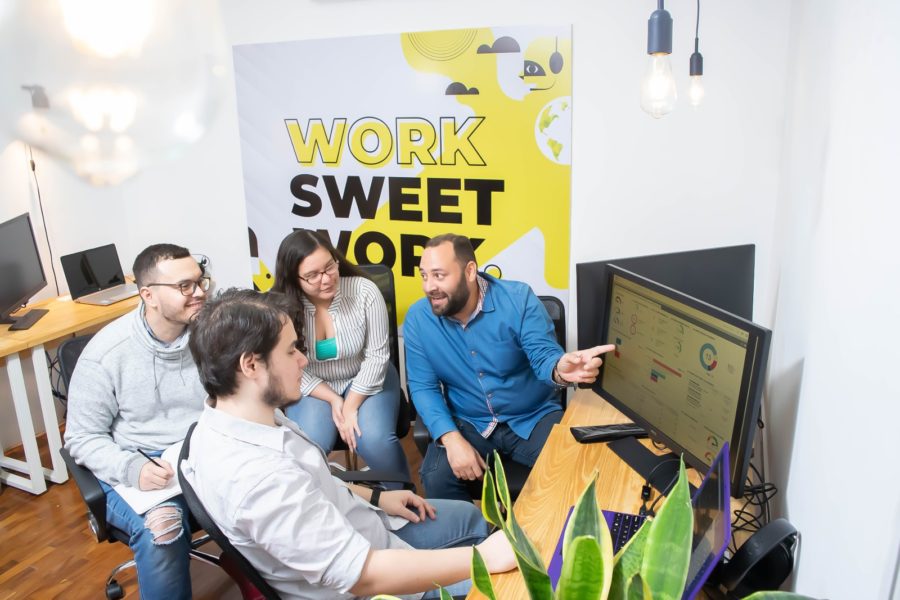It’s widely known that burnout can put an end to many things: interest in a hobby, a personal bond, a working relationship, and, of course, a person’s mental health. However, we often overlook the significant damage that exhaustion can inflict on creative geniuses. In most cases, burnout is the biggest obstacle to having innovative ideas, but today’s society tends to underestimate the importance of rest.
Therefore, in favor of raising awareness about how important it is to stay healthy if you want to have a successful and happy life, this time, we will discuss how exhaustion can prevent you from reaching your full creative potential and why you should take care of this.
As always, it is important to know what we are talking about before starting a discussion. So, let’s review: What exactly does burnout mean?
The Definition of Burnout
According to Herbert Freudenberger, in his book “Burnout: The High Cost of Achievement,” burnout is the depletion of motivation or incentive, especially when one’s commitment to a cause or relationship fails to yield the desired results.
Burnout has many symptoms and can present itself in different ways in everyone, so it can be a bit difficult to identify when someone is experiencing this situation. Some of the most common characteristics of people with burnout are feelings of exhaustion, emptiness, and difficulty dealing with previously unproblematic tasks.
Burnout Symptoms
In other cases, burnout can appear as an aversion to participating in work-related activities, headaches or stomach aches, and, almost always, a significant decrease in the individual’s level of productivity. We all function best when feeling fresh and capable, but otherwise, our body and mind can start to wobble and eventually fall.
It’s important to know that we are all vulnerable to falling into this state, mainly people who work for a cause or company with which they don’t feel particularly identified or in a work environment full of toxic and heavy energy, but even people who love their jobs can become exhausted and need a rest from time to time.

Overworking can be tempting when we live in a world that values job success so much. When you are dedicated to success, you devote your full effort to everything you do. Trust me, you will achieve it, but it will be much easier for your creativity to flow and for innovative and original ideas to come to you if you let your mind breathe.
Now, understanding what burn-out is and knowing more or less what it looks like, I am sure that you know at least two people who have gone through this, or maybe it’s you who is currently performing each task for nothing more than responsibility, your back growing sore and your head feeling heavy.
As common as this problem is, it’s not talked about enough, and because of this, many people are unaware of the damage it has on someone’s creativity.
Why Creative People Should Avoid Burnout
While stress can sometimes be a great motivator for creativity, pushing our minds to come up with ideas, when we hit rock bottom, we are too tired to do so.
Creativity is fluid and runs through our minds like a stream of water. Exhaustion would be a large, heavy, thick log preventing the clear water from running its course. Following that analogy, that heavy log is made of the mental, physical, and spiritual fatigue that constant stress generates. This affects originality, creativity, and innovation.
Without these three values, everything we produce, whatever our work, will be monotonous, end in a not-so-successful idea, or perhaps it will not even reach the light. So what am I saying with this? Take that heavy trunk, and little by little, make space for the muse to move to where it prefers.

Creativity needs balance. You need to feed it with new information and experiences, fill it with life, and include everything that inspires you. But be careful of overstimulation, as it could lead to losing the balance between the flow’s intensity and your control over it.
Your creativity needs room to grow, but it should not be forced. The more it’s forced, the longer it will take to arrive, which will only lead to frustration.
That frustration will eventually lead to a loss of motivation and exhaustion from work. A mind with creative burnout can procrastinate like a champion and yet still feel exhausted at every moment. It can develop feelings of constant anxiety and stress, as well as variations in mood such as irritability or high sensitivity.
And yes, as you may know, these things do not exactly come in handy in a work context—not a healthy life context. No one should be taken to that point.
How to Prevent Burnout
Although getting over burnout can take a long time, it’s not entirely impossible. However, this is a condition that is much easier to prevent. So, here are some tips that can help you avert creative burnout before you need to cure it.
Express Yourself
Whether with a friend, therapist, coworker, or family member, sharing your experiences and shedding some of that weight you carry on your back can significantly help relieve stress.
Seeking support is beneficial, as humans often find joy in our connections with other humans and in feeling vulnerable and accepted. Also, by sharing your heaviness, you may relieve your stress and help someone else know that they can let go of their burden, too. Sharing the weight makes it easier to carry, just like ants do.
Take a Break
This may seem obvious, but as someone who tends to overwork myself, I can say that even though we know we must take a break, we don’t always do it. But we must.
Taking a few days to yourself, even a few hours, or whatever time you have to unwind, surround yourself with the things that fill you with peace, and take your mind off work can be tremendously beneficial to your mental health and to your productivity, once you get back to it.
Don’t underestimate the power of walks close to nature. It has been proven that humans find comfort in seeing themselves surrounded by trees, flowers, or other plants.
Divide Your Work Load
Once you are back, with a clear mind and (perhaps) some idea, you can divide the work you have to do and start slowly, from the simplest parts to the most complex ones, to move forward with baby steps.
This way, you are not being too hard on yourself by demanding that you have everything ready immediately, but you are responsible by moving forward and doing your job.
You can find more tips in our article 5 Ways To Avoid Emotional Burnout From Work Stress, and our YouTube video with tips to overcome stress and anxiety!
We all experience burnout from time to time, so don’t despair if you’re there right now. Take a deep breath, correct your posture, and use this information as inspiration to take action toward a healthier, more self-kind way of living and working. Remember that we work to have a better life but do not live to work.
If you found this helpful information, follow us on Instagram and subscribe to our YouTube channel, where we constantly share essential content.
See more articles by Andrea Corona.






